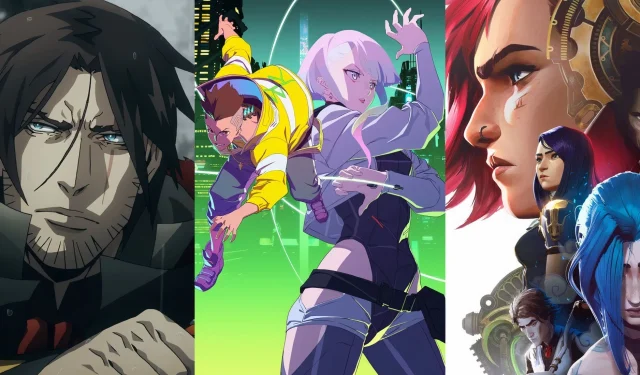
Essential Insights
- Netflix’s adaptations of video games have markedly improved, with titles like Arcane and Cyberpunk: Edgerunners receiving praise from both critics and audiences.
- In contrast, adaptations of Resident Evil have often let fans down due to their deviations from established game lore, garnering mixed to unfavorable reviews.
- Castlevania and Cyberpunk: Edgerunners are highlighted as some of Netflix’s most exceptional video game adaptations, noted for their engaging narratives and impressive visual aesthetics.
Once regarded as a source of disappointment, video game adaptations have undergone a noticeable transformation. Previously, news of a beloved game being adapted into film or television would often spark dread. Now, while there may still be apprehension, there’s also a sense of optimism. This shift can largely be attributed to Netflix’s track record of largely successful adaptations.
Despite facing criticism, Netflix continues to produce binge-worthy series, with several notable adaptations of video games standing out. While not every series has struck a chord, productions like Arcane and Cyberpunk: Edgerunners have garnered both critical acclaim and enthusiastic support from fans. Given the fiercely protective nature of dedicated fans towards their favorite franchises, achieving this level of approval is commendable. The following ranking reflects every Netflix series based on games, excluding a few kid-oriented shows and The Witcher, which primarily draws from the original novels. The ranking takes into account a combination of their IMDB and Rotten Tomatoes ratings.
13 Resident Evil
IMDB: 4.2, Rotten Tomatoes: 53%

The initial shows in this franchise received lukewarm receptions, potentially leading to some discontent regarding their placement on this list. Despite a wealth of adaptations for the Resident Evil franchise, studios repeatedly overlook the most compelling source material from the games. Known for its rich storytelling and complex lore, the horror series disappointingly strays from these foundations in its live-action adaptations.
This tendency has resulted in swift backlash from loyal fans. Netflix’s live-action series presents an original narrative across dual timelines, with one focusing on Albert Wesker and his daughters in the year 2022, and the other set against a dystopian backdrop in 2036. While the series aims to align with the game universe, it skims over vital elements that define the Resident Evil series. With impressive production values and the inclusion of the talented Lance Reddick, the resulting reviews from critics remained decidedly mixed, reflecting a lack of suspense, slow pacing, and underwhelming character development. Devotees of the franchise were particularly vocal in their disapproval, especially regarding Reddick’s portrayal of Wesker and numerous alterations to established lore.
12 Resident Evil: Infinite Darkness
IMDB: 5.8, Rotten Tomatoes: 50%
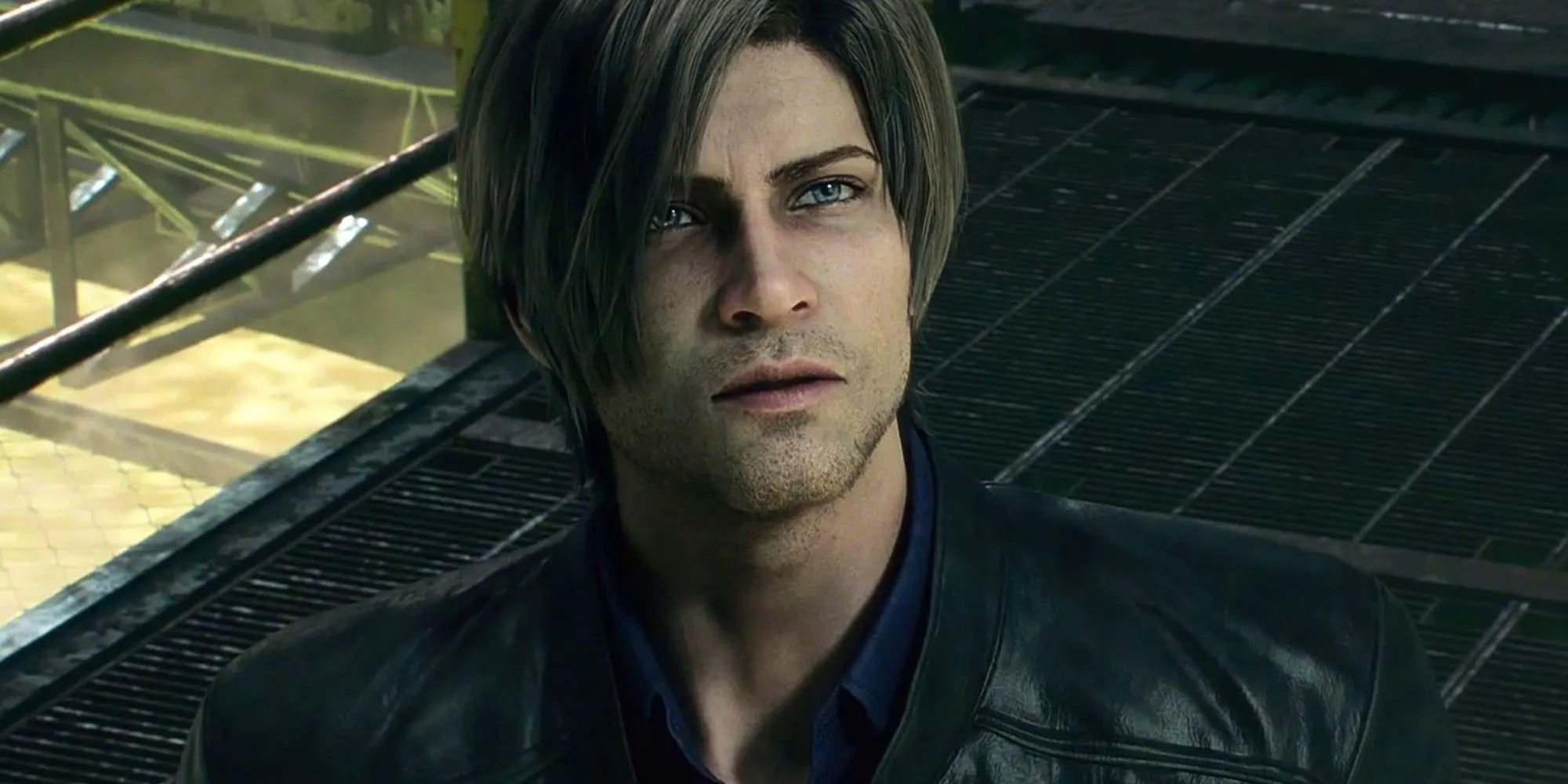
- Studio: TMS Entertainment
In contrast to its live-action counterparts, Resident Evil: Infinite Darkness faced different criticisms. Although critics offered mostly average reviews, many fans found enjoyment in the series. This CGI animated show focuses on beloved characters Leon S. Kennedy and Claire Redfield during the timeline between Resident Evil 4 and Resident Evil 5. While it boasts ample lore from the franchise, the emphasis shifts towards political intrigue and espionage over the conventional zombie horror.
Animation quality is commendable, and voice acting is notably impressive. Yet, many elements fade from memory, as the plot can bewilder viewers unfamiliar with the franchise, and it lacks sufficient horror content for devoted fans. Still, for fans, this series represented progress for future adaptations, even if it didn’t fully realize its potential.
11 Tekken: Bloodline
IMDB: 6.5, Rotten Tomatoes: 40%
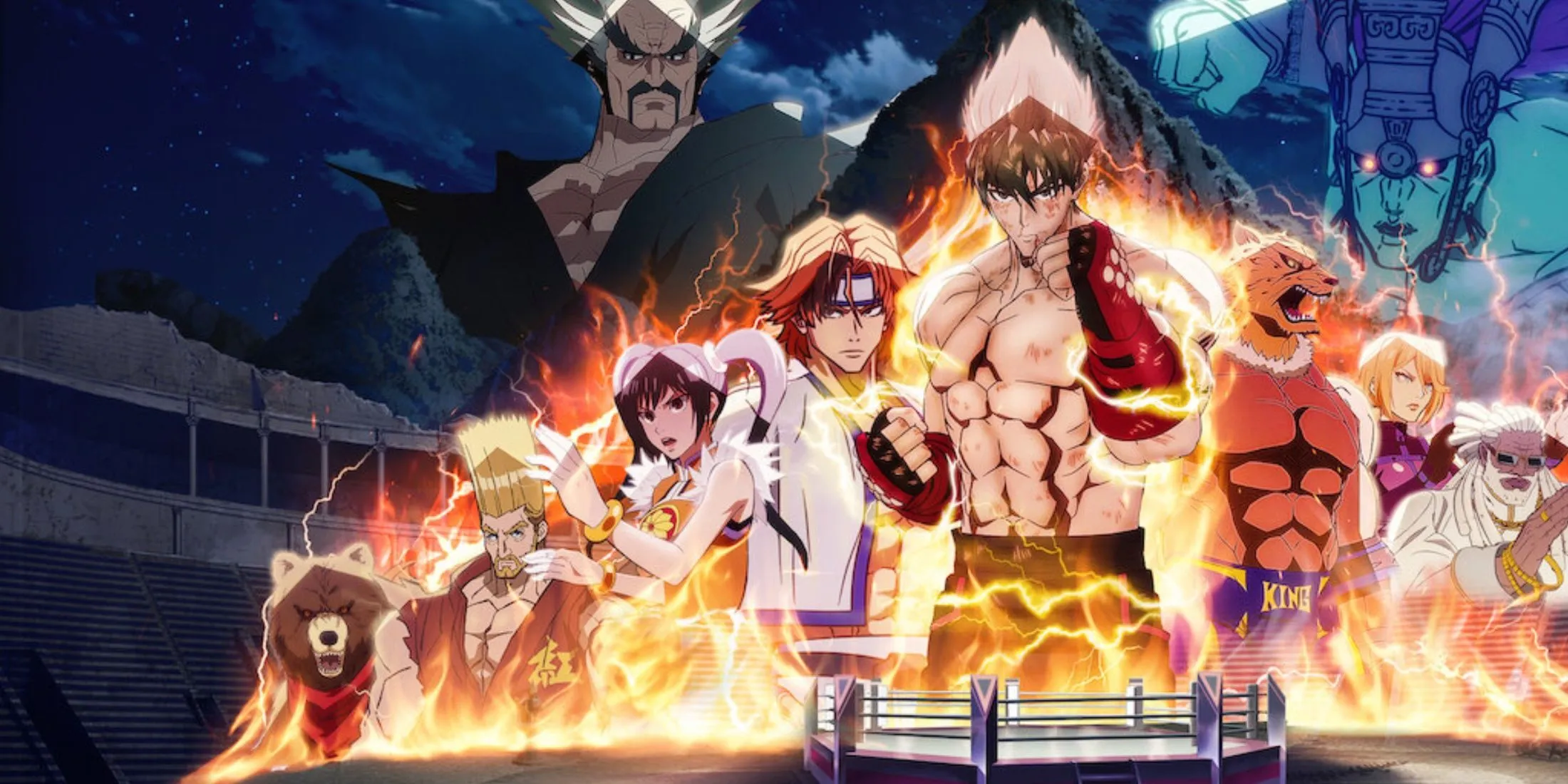
- Released: August 18, 2022
- Studio: Studio Hibari & Larx Entertainment
While Tekken: Bloodline earned mixed ratings, it wasn’t necessarily poor. Critics had divided opinions about its strengths and weaknesses as the anime closely follows Jin Kazama’s storyline throughout and around Tekken 3. Broadly, the series explores two main story arcs: Jin’s training with his mother and grandfather followed by his participation in the King of Iron First Tournament as he seeks vengeance for his mother.
Though the anime captures Tekken’s lore faithfully, it branches off to delve into character backstories from other series entries. While the narrative is solid, critics felt the spotlight centered too heavily on Jin, neglecting other beloved characters. Major criticisms pointed toward inconsistent animation and pacing; while the fight scenes excelled, there were not nearly enough of them. Given the series’ reputation for spectacular confrontations, the focus on Jin’s training took too much attention away from the high-octane battles fans anticipated.
10 Tomb Raider: The Legend of Lara Croft
IMDB: 5.2, Rotten Tomatoes: 71%
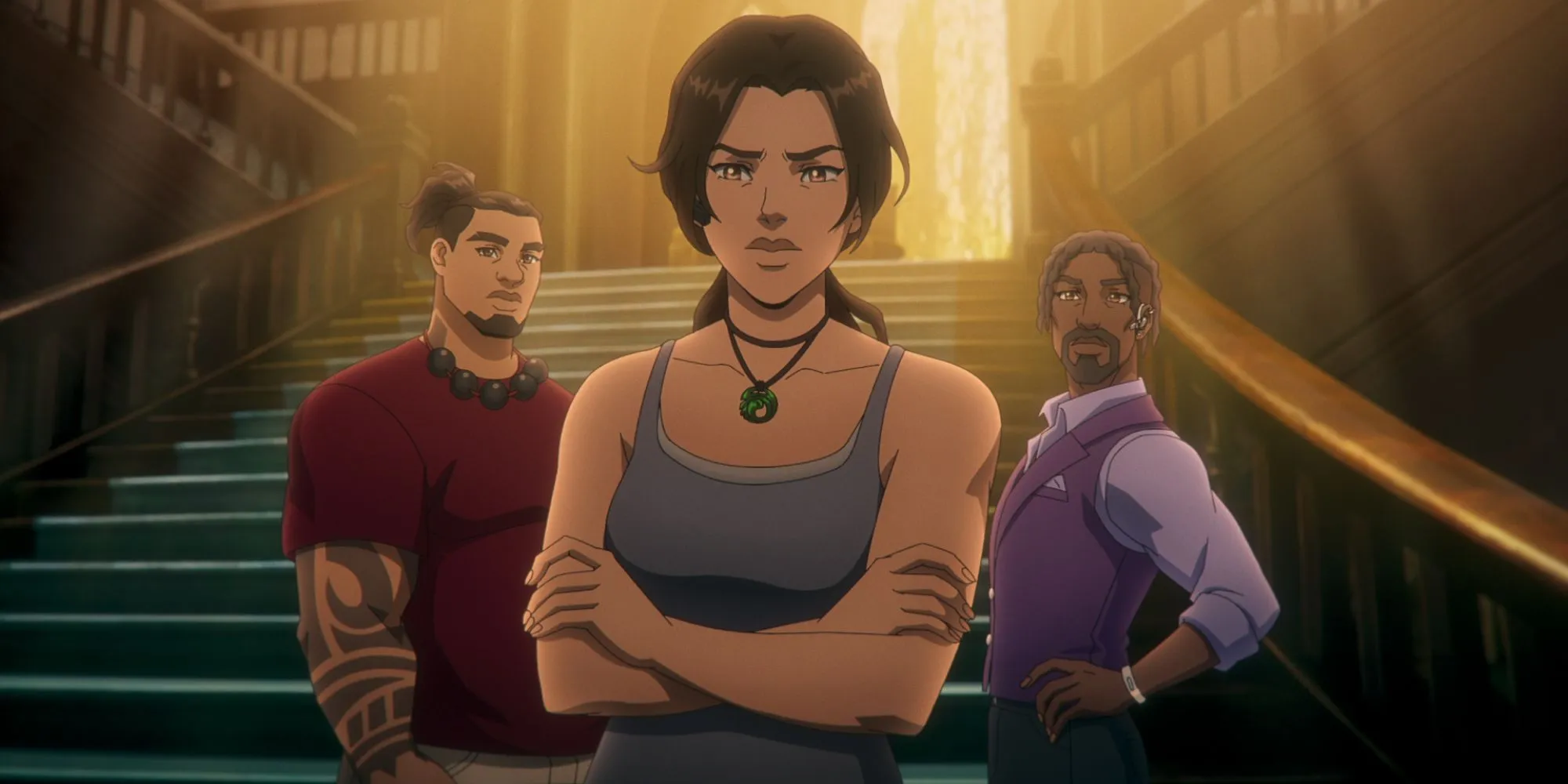
- Released: October 10, 2024
- Studio: Powerhouse Animation Studios
The Legend of Lara Croft remains new enough that its legacy is yet to be determined. Currently, it can be described as decent, bordering on good. This series serves as a direct follow-up to the Survivor trilogy, attempting to align its portrayal of Lara Croft with the classic games that many fans cherish. Unfortunately, it struggles to hit the mark.
The show revisits several narrative elements from recent games—acknowledged as some of the franchise’s finest—yet sometimes leans too heavily on Lara’s struggles with her past, her legacy, and her father. Fans are familiar with these themes already. The pacing feels sluggish, and while the action sequences are competently crafted, they lack the same impact witnessed in the games. On a positive note, Hayley Atwell embodies Lara Croft excellently (though some may argue her voice sounds somewhat mature), and the animation quality is generally high. It’s hoped that future writing will steer clear of Lara’s domestic issues as they work toward a potential Season 2.
9 Dragon’s Dogma
IMDB: 6.3, Rotten Tomatoes: 71%
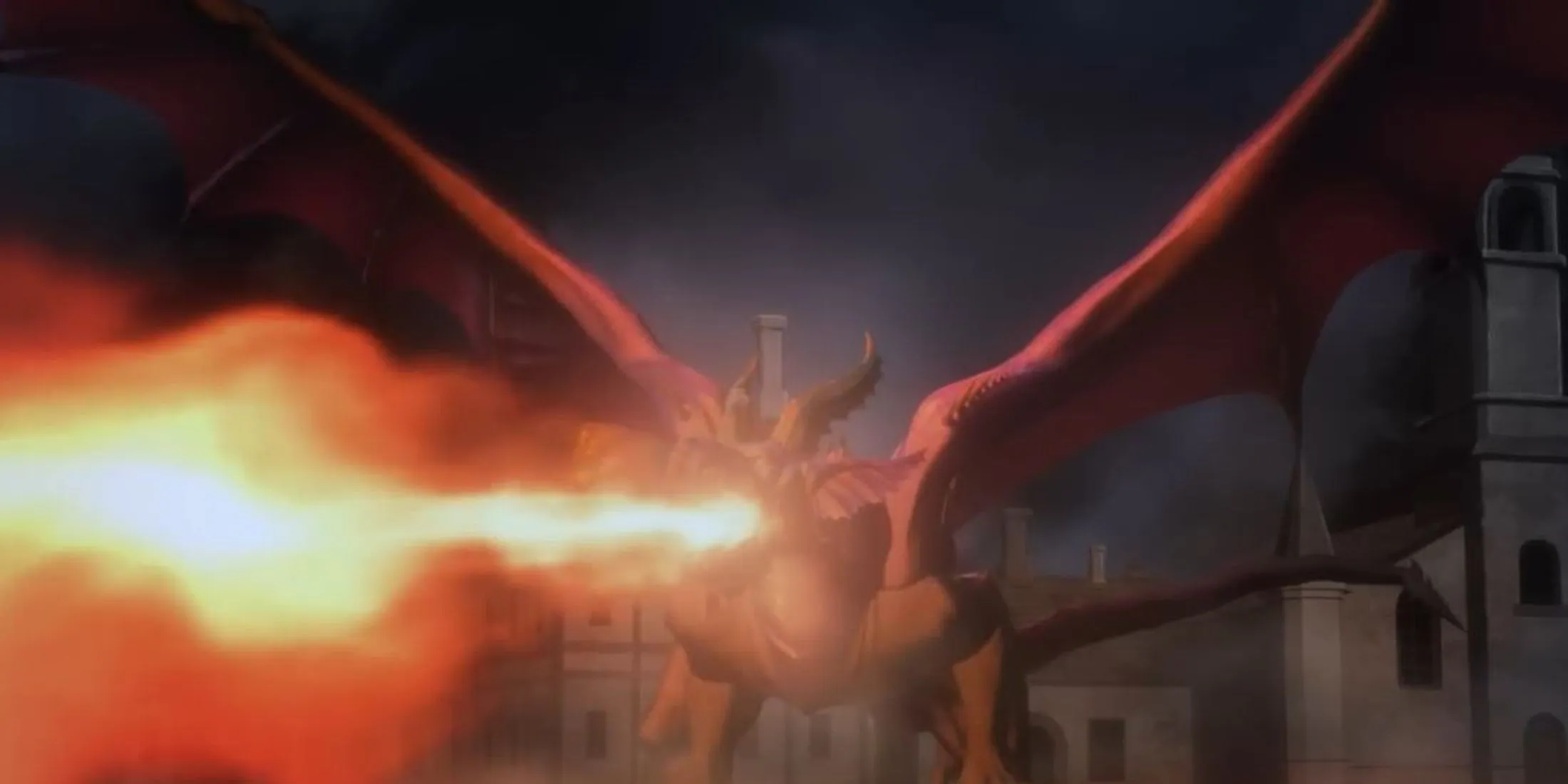
- Released: September 17, 2020
- Studio: Sublimation
Given its ratings, Dragon’s Dogma narrowly edges out Tomb Raider, yet perhaps it should be assessed a bit lower. This unique anime stays true to some game lore, but appears to overlook the elements that resonate with RPG enthusiasts. The narrative follows Ethan, an Arisen, on a quest for vengeance against the dragon that wrecked his village and took his heart (in a metaphorical sense).
Each episode delves into a different deadly sin, a narrative angle not present in either game. While the anime prioritizes storytelling over gameplay elements, this shift hinders world-building. The artwork can be exquisite at times, but the CGI fails to impress, especially regarding monsters—a shortcoming for an anime focused on creature slaying. Critics and fans were also perturbed by the show’s frequent graphic violence and sexual content, which seemed misplaced given the games’ relatively tame nature. Overall, while the anime is average as a standalone project, it leaves fans wanting more from its source.
8 Dragon Age: Absolution
IMDB: 6.4, Rotten Tomatoes: 92%
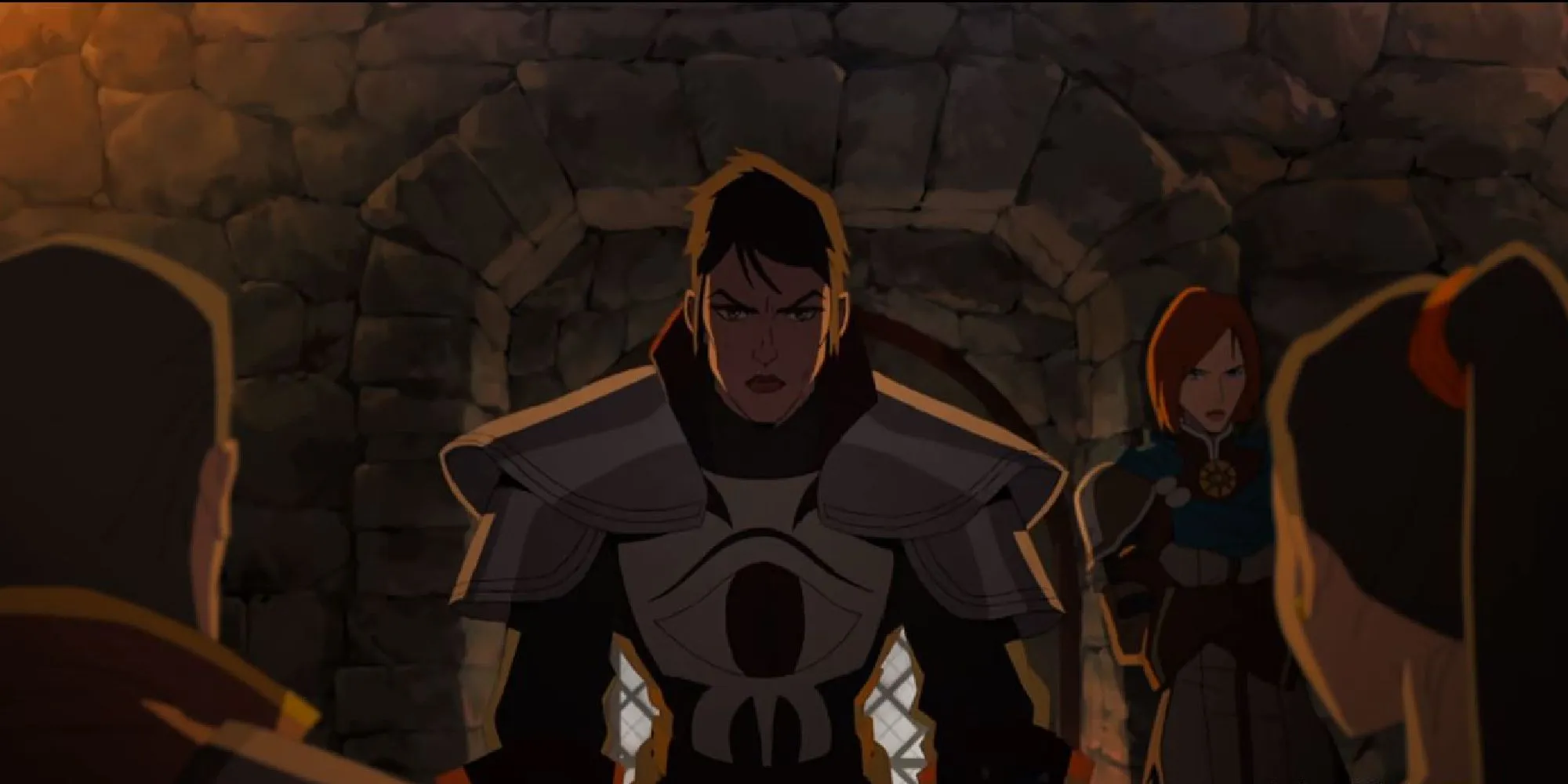
- Studio: Red Dog Culture House
It’s a testament to the overall quality of Netflix’s adaptations that Dragon Age: Absolution ranks eighth despite boasting a favorable 92% on Rotten Tomatoes. Its placement is influenced by a less stellar IMDB score and some drawbacks that prevent it from reaching true brilliance. Set in the Tevinter Imperium, this anime follows a band of misfits on their quest to steal a magical artifact known as the Circulum Infinitius.
Staying true to the Dragon Age franchise, the series might risk alienating viewers unfamiliar with the games. Animation and voice acting meet fans’ high expectations, given BioWare’s oversight. Still, the series appears rushed, dashing through a wealth of story in just six episodes, resulting in a surprise ending. The captivating pairings typical of the Dragon Age universe could also use more focus, leaving many viewers feeling disappointed. Until a second season materializes, fans might prefer to be cautious in their expectations.
7 Onimusha
IMDB: 6.8, Rotten Tomatoes: 100%
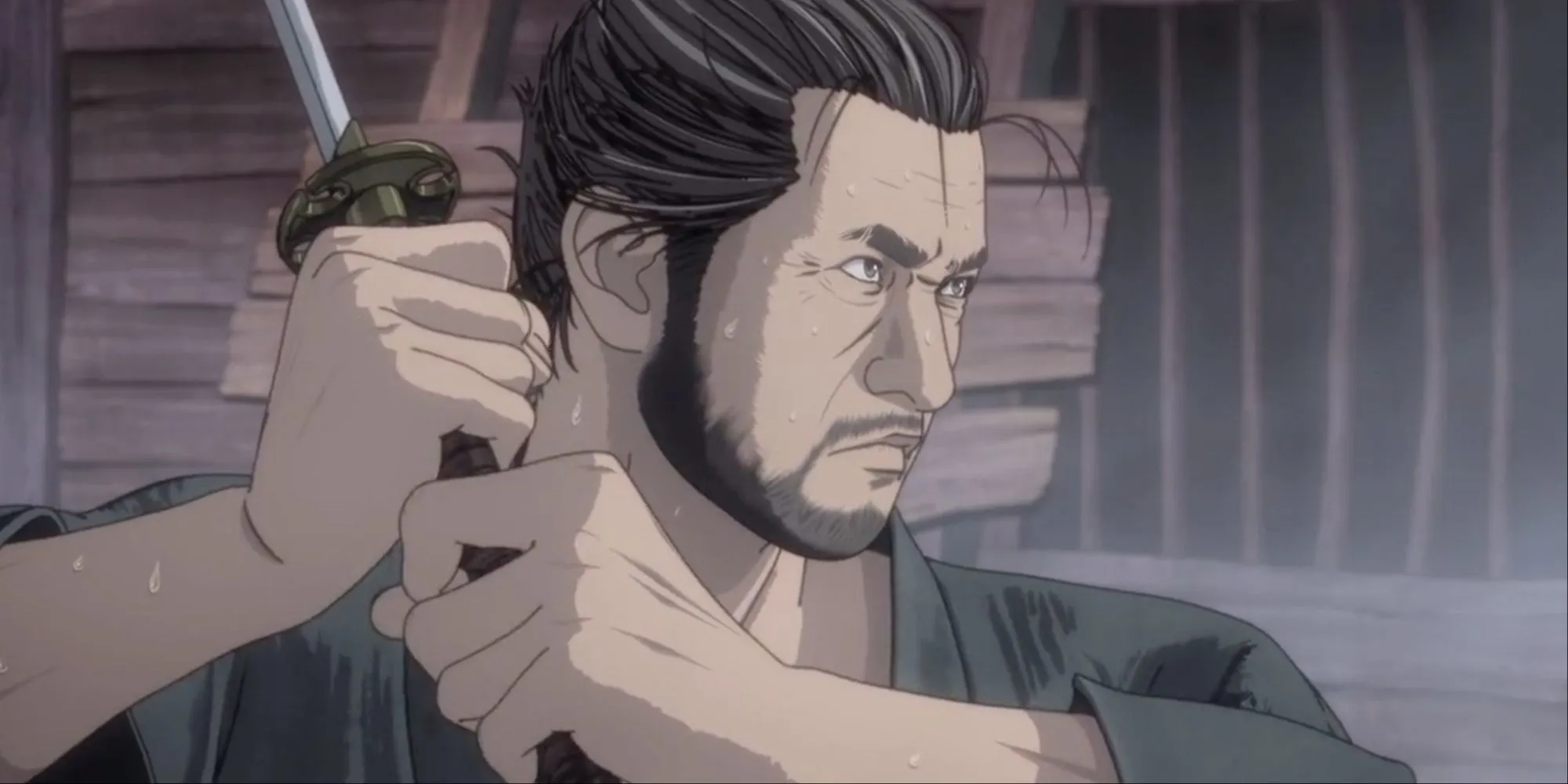
- Released: November 2, 2023
- Studio: Sublimation
Despite achieving a perfect Rotten Tomatoes score, fan ratings for Onimusha tell a different story. Set against the backdrop of feudal Japan, it follows Musashi Miyamoto on a covert mission alongside his allies to conquer demons with the help of the mystical “Oni Gauntlet.”While critics praised the anime’s artistic style, compelling storytelling, and animation quality, many viewers felt detached.
The adaptation, while faithful to the franchise with elements like the Oni Gauntlet and Genma demons, attempted to chart its own narrative journey. Such ambition, however, often comes at the expense of coherence—as a result, the 3D animation fluctuates in quality and the latter half feels hurried, introducing characters and plot points without proper context. While one could enjoy Onimusha as a standalone dark fantasy anime, those familiar with its gaming origins may find discord in its journey.
6 Captain Laserhawk: A Blood Dragon Remix
IMDB: 7, Rotten Tomatoes: 89%
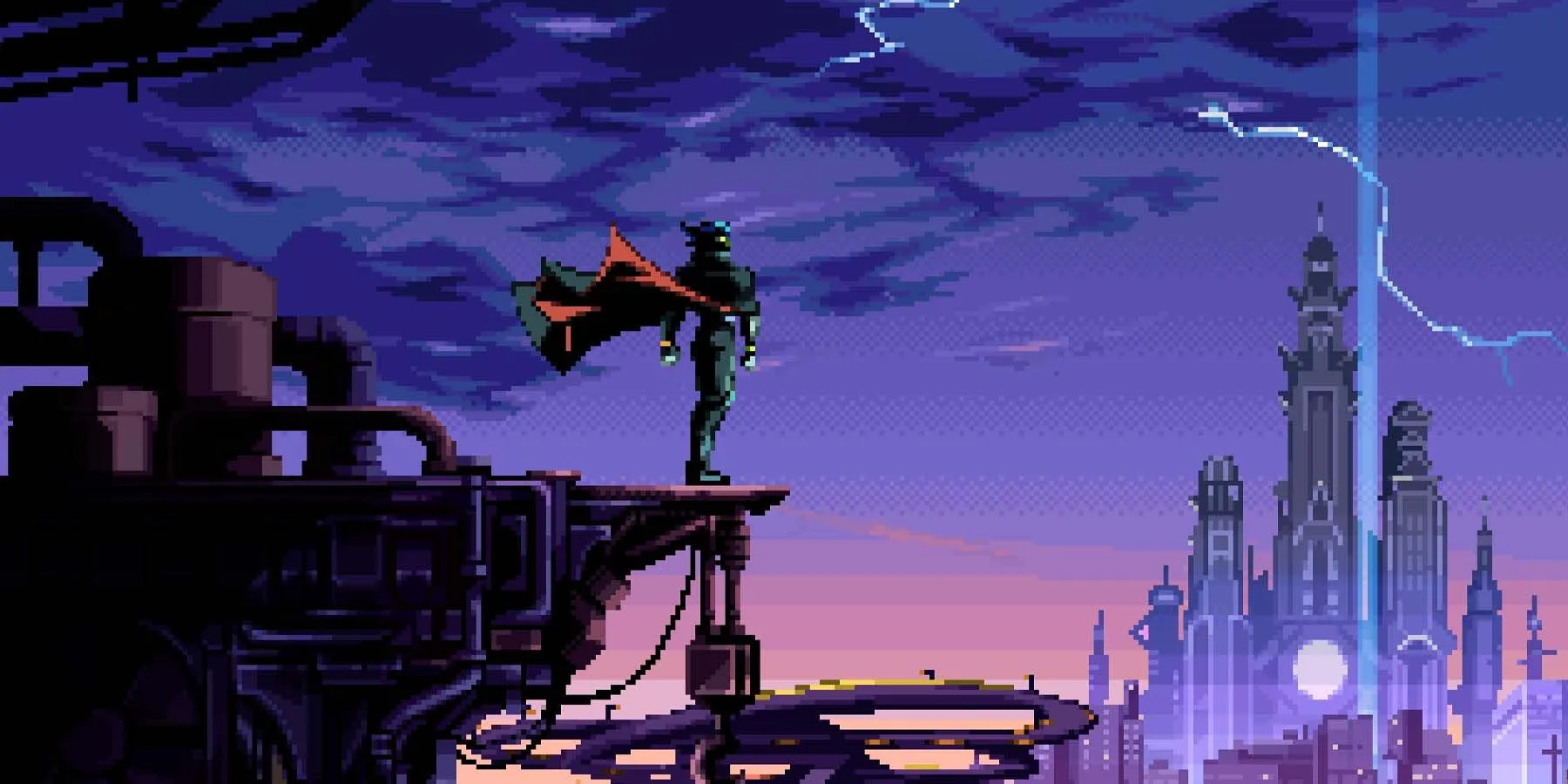
- Released: October 19, 2023
- Studio: Ubisoft Film & Television, Bobbypills, Bootleg Universe
Gamers have a complicated relationship with Ubisoft, loving some of its titles yet criticizing the studio. This paradox makes Captain Laserhawk‘s approach pleasantly surprising. Drawing inspiration from one of the franchise’s standout entries in Far Cry, the creators were unhindered in ridiculing the studio’s popular characters and lore.
This series unfolds in a fictional future wherein some of Ubisoft’s most iconic figures challenge an authoritative megacorporation, while others align with it. The unique visual style pays homage to the Blood Dragon legacy, delivering imaginative action scenes. The narrative creatively incorporates various characters, allowing for a dynamic portrayal—albeit with flaws. Like other adaptations that rank lower on this list, Captain Laserhawk suffers from brevity and hurried storytelling. Consequently, character arcs can feel rushed, leading to unexpected twists that lack emotional resonance. Despite Ubisoft’s hands-off approach allowing for creativity, the show’s rapid pace suffers from Netflix’s constraints.
5 DOTA: Dragon’s Blood
IMDB: 7.7, Rotten Tomatoes: NA
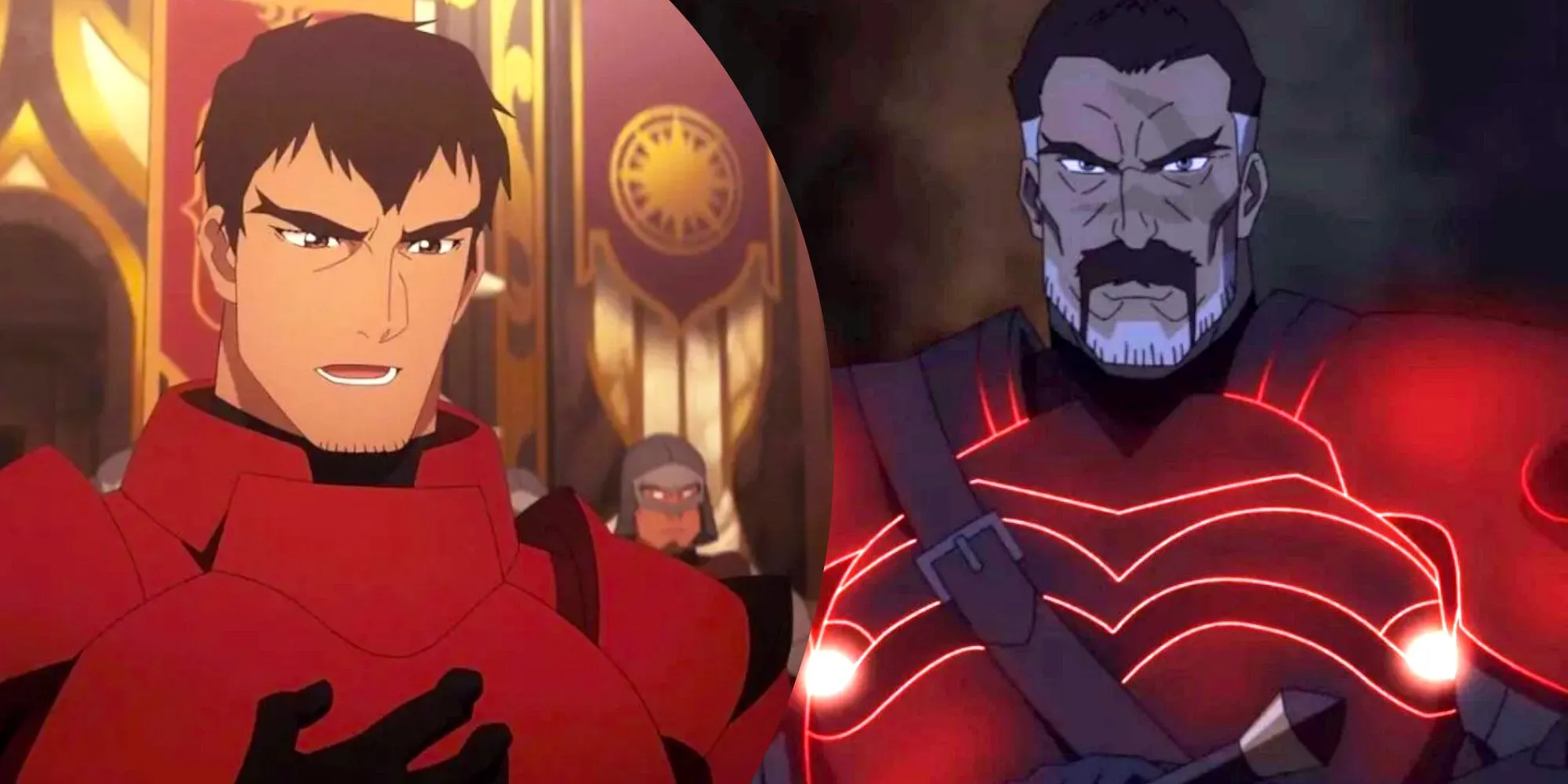
- Released: March 15, 2021
- Studio: Studio Mir
DOTA: Dragon’s Blood launched with a strong premise, spanning three seasons, yet ultimately fell short of the heights reached by series like Castlevania. The tale centers on Dragon Knight Davion, whose soul fuses with the dragon Slyrak. Alongside Princess Mirana, he embarks on a mission to thwart the nefarious demon Terrorblade, who aims to harvest Dragon Souls. Richly layered in DOTA lore, the show manages to introduce new viewers to the franchise through its engaging storytelling.
Animation quality is largely commendable, and the story expands DOTA’s universe effectively. Notably, an original character, Marci, was integrated into DOTA 2 as a playable hero post-launch. Still, uneven pacing hinders the series: Book 1 progresses slowly before racing to the conclusion, while Book 2 operates at a dizzying speed, overwhelming players with a flood of lore to digest. Consequently, character relationships often develop unrealistically fast, diminishing their emotional weight when significant turning points arrive. Although a solid adaptation, Dota: Dragon’s Blood faces struggles due to the constraints imposed by streaming formats.
4 Castlevania: Nocturne
IMDB: 7.4, Rotten Tomatoes: 96%
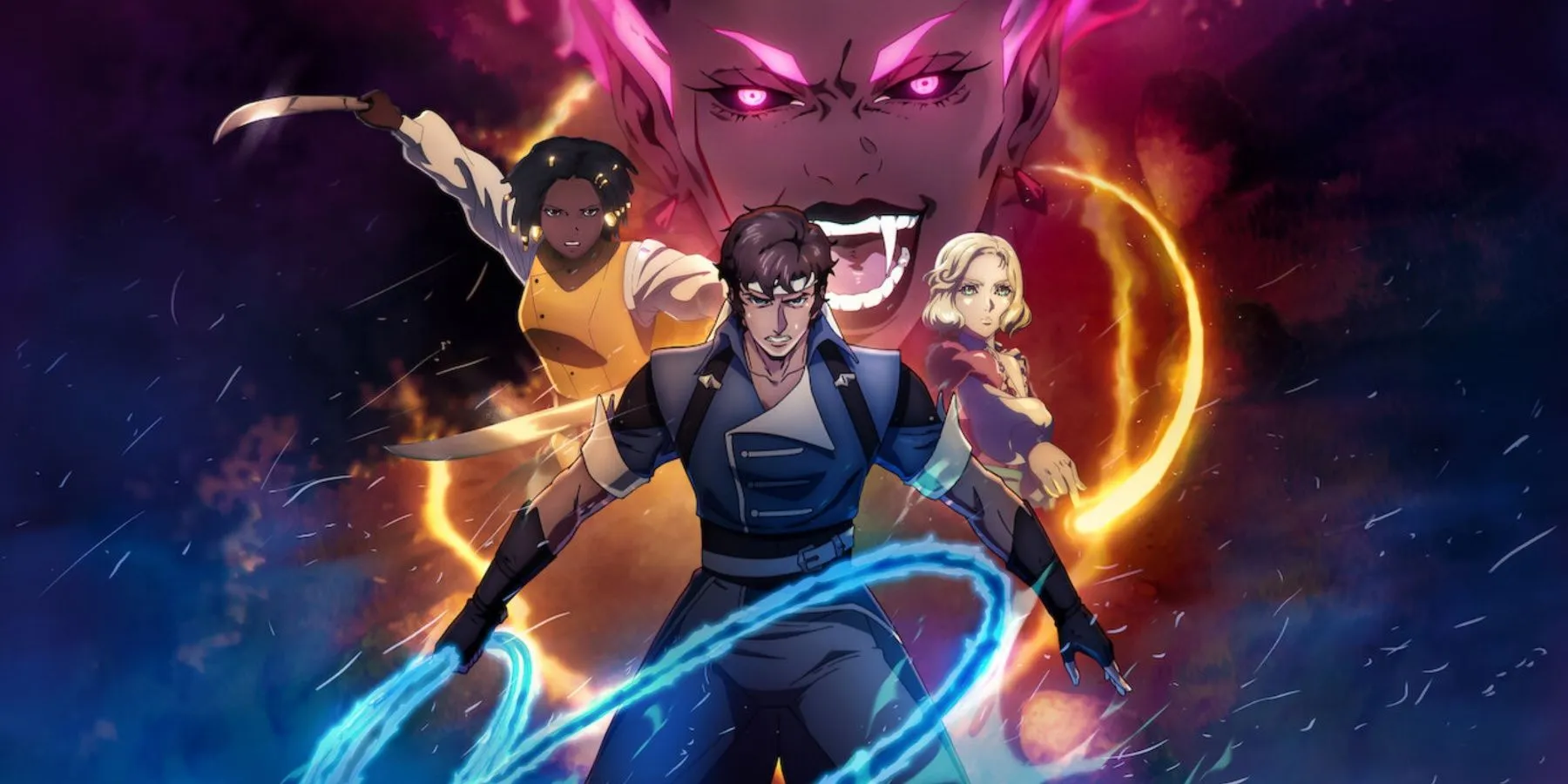
- Studio: Powerhouse Animation
Castlevania: Nocturne faced significant expectations following its predecessor’s success. Fortunately, the series meets these standards. Set during the French Revolution of 1792, it adapts Castlevania: Rondo of Blood alongside aspects of Castlevania: Symphony of the Night. The narrative follows Richter, the descendent of Trevor Belmont, as a new vampire menace emerges following Dracula’s apparent defeat—the “Vampire Messiah.”
With its adaptation rooted in well-loved Castlevania titles, the quality remains top-notch: dynamic animation and riveting action sequences complement strong voice performances. The series adeptly translates the essence of Castlevania’s lore into a captivating format, though pacing remains an issue. There’s a recurring rush to the finish, leaving some supporting characters inadequately fleshed out, detracting from the emotional impact of tragic story arcs. The renewal of the series offers hope for a more developed continuation.
3 Castlevania
IMDB: 8.3, Rotten Tomatoes: 94%
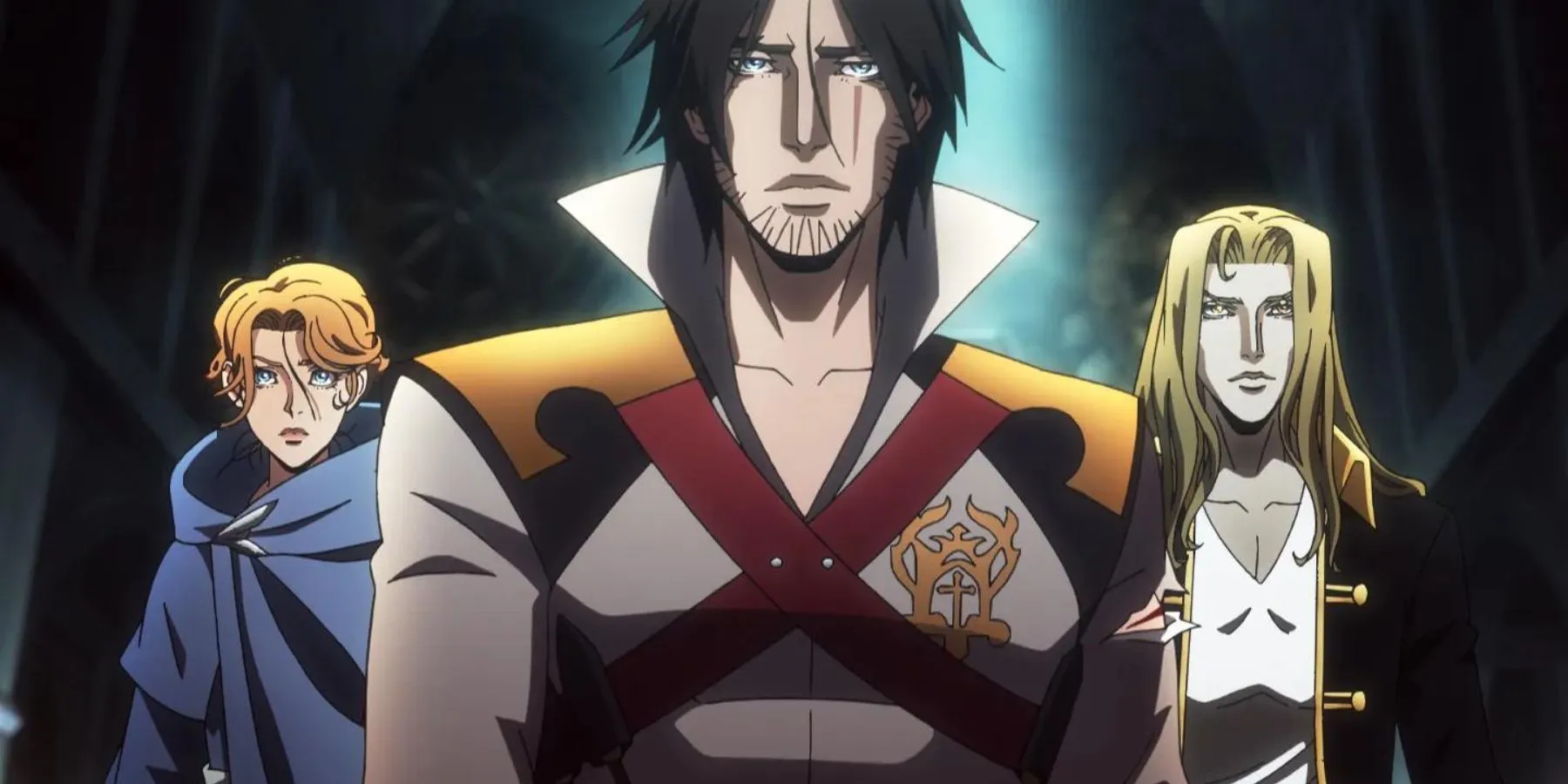
Arguably the shining star that heralded Netflix’s golden era of video game adaptations, Castlevania chronicles the adventures of reluctant heroes Trevor Belmont, Sypha, and Alucard as they confront Dracula’s legion of darkness in pursuit of the vampire lord himself. The series is visually stunning, merging gothic and baroque stylistic influences to preserve the core essence of the long-standing gaming franchise.
Characters enjoy significant development that transcends their origins in the games; Richard Armitage’s portrayal of Trevor stands out, with sophisticated writing granting Dracula a sympathetic perspective. While remaining faithful to the franchise’s lore, it expands the universe with a blend of dark humor and brutal storytelling. The series expertly balances intense, choreographed battles with character development. Moreover, it manages to resonate with loyalists and casual viewers alike, marking Castlevania as a pivotal milestone in the landscape of video game adaptations.
2 Cyberpunk: Edgerunners
IMDB: 8.3, Rotten Tomatoes: 100%
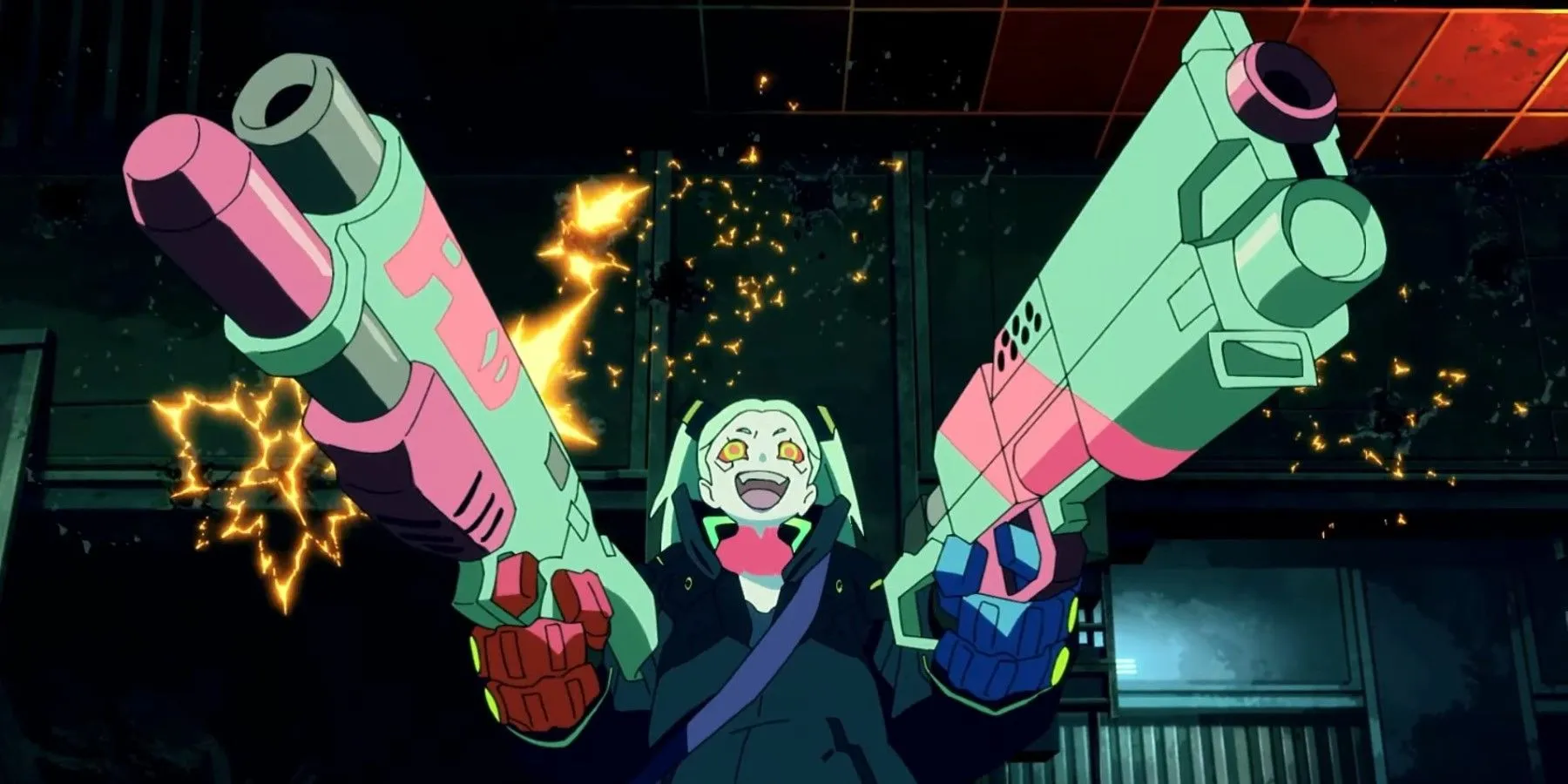
Upon its release in 2022, Cyberpunk: Edgerunners served as a much-needed public relations boost for Cyberpunk 2077, which was then struggling with its own issues. Set in the vibrant Night City, the series follows David Martinez, a young streetwise character who stumbles upon a game-changing piece of cyberware after his mother’s death.
Joining an elite crew of mercenaries known as Edgerunners, David rapidly transforms, abandoning his innocence as he chooses to enhance himself. This anime features rich character development and emotional storytelling that resonates deeply. Not only does it embrace the game’s themes, but it elevates them with stunningly brutal action sequences that stand out in the realm of animated series. Edgerunners establishes a richer depiction of Night City, particularly refining the antagonist Adam Smasher, making him more formidable compared to his game counterpart. The conclusion is heartrending, leaving little room for a sequel, although fans remain hopeful for new Cyberpunk adventures in the future.
1 Arcane
IMDB: 8.3, Rotten Tomatoes: 100%
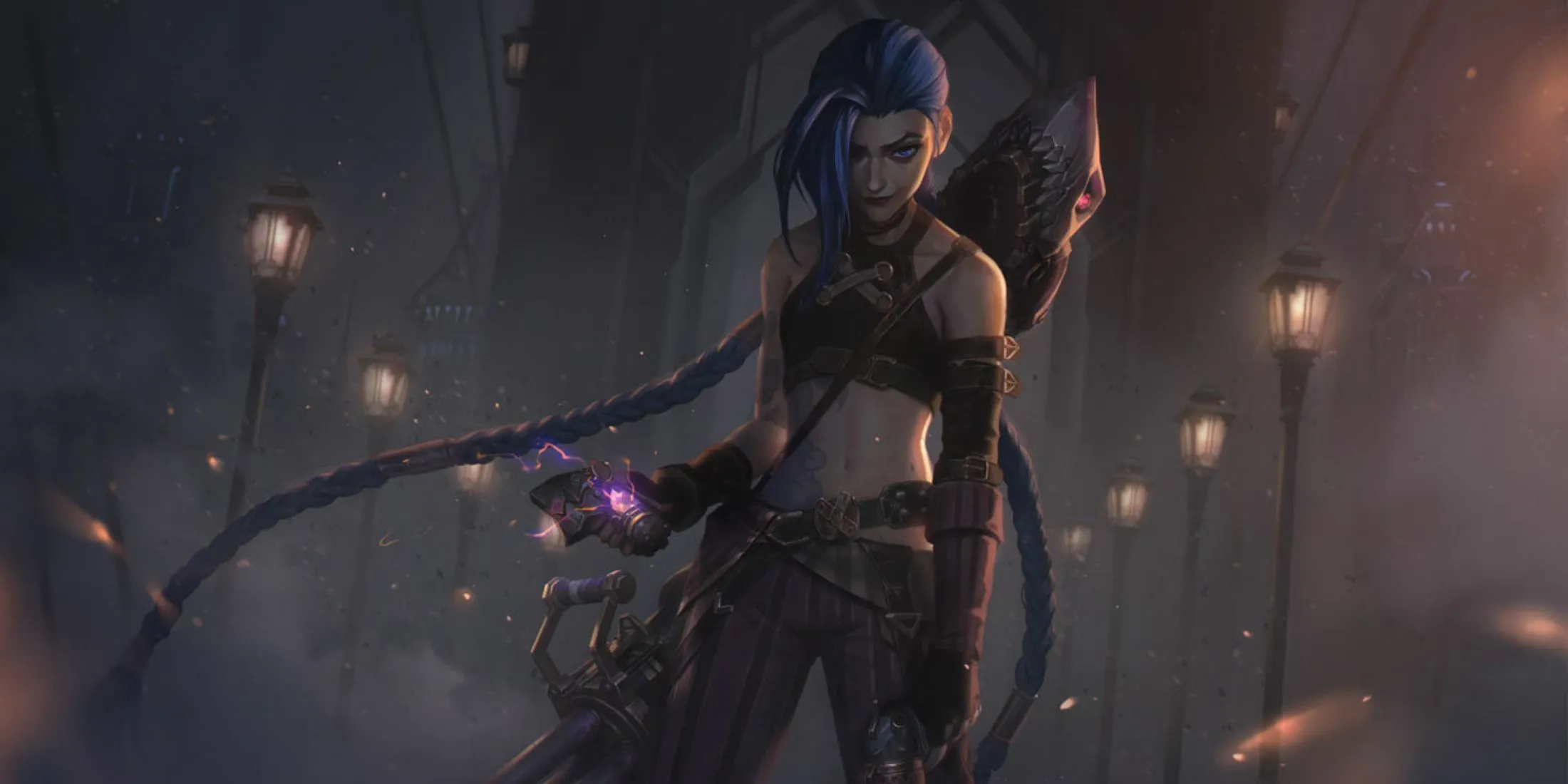
Arcane captivated viewers upon its release, exceeding the expectations of many. Set against the steampunk backdrop of League of Legends’ Piltover and Zaun, it chronicles the lives of sisters Vi and Jinx amidst the chaos of a botched heist, leading to conflict and division.
Narratively rich and visually stunning, Studio Fortiche delivers a masterpiece. The series brings to life not only the cities but also expands on iconic champions from the game, infusing depth and complexity into their personalities. Exceptional voice acting, particularly by Hailee Steinfeld as Vi and Ella Purnell as Jinx, enhances the experience. The character of Jinx epitomizes chaotic villainy, rivaling even the Joker. Arcane manages pacing better than many adaptations, balancing action sequences with character development and emotional depth most notably towards its finale. With widespread critical acclaim and accolades including an Emmy, anticipation for Season 2, projected for November 2024, grows among the audience.




Leave a Reply